Seminar
European and Asian Views on COVID-19
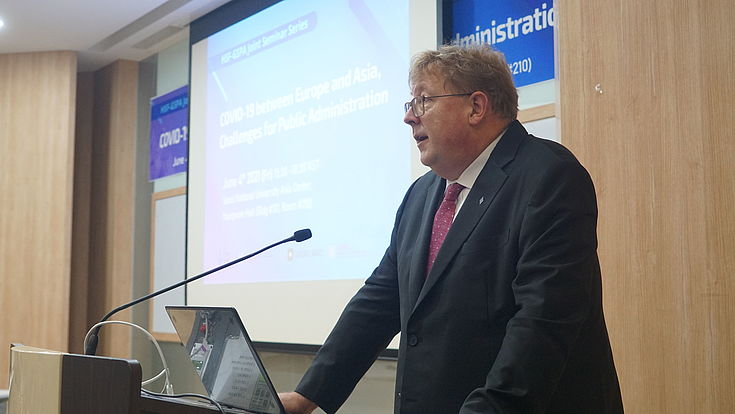
On Friday, June 4th, Hanns Seidel Foundation Korea and Seoul National University Graduate School of Public Administration held their second session, as part of their joint seminar series. The event held the name “COVID-19 between Europe and Asia, Challenges for Public Administration” and brought together academics and professionals, who gave talks on difficulties brought on by COVID-related issues in their respective countries. All the speakers brought their own experiences and perspectives, which led to thought-provoking discussions throughout the event. Dr. Bernhard Seliger of HSF Korea gave short opening remarks, where he expressed his optimism towards the large-scale vaccinations that are now taking place globally and feels that a slow return to normality is being set in motion. At the same time, he described the “vaccine envy” that some are experiencing, as some countries have seen more sluggish vaccine rollouts than others.
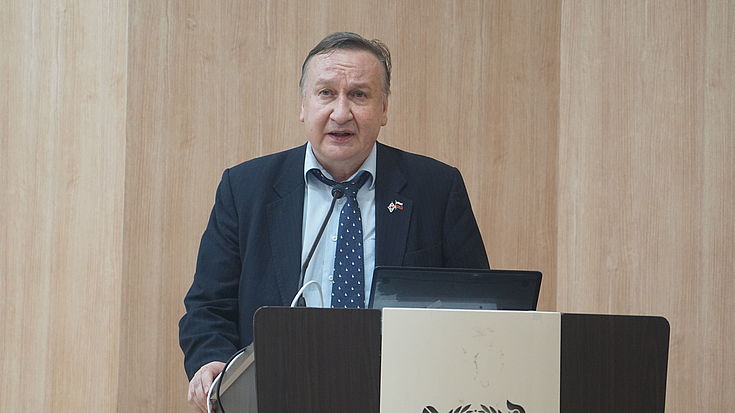
The first speaker, Pavel Leshakov, counselor at the Embassy of the Russian Federation in the Republic of Korea gave a talk on the role of Russian vaccines in the global fight against COVID-19. According to Leshakov, the vaccination rate in Russia currently sits at around 8%, and like many countries, is dealing with vaccine hesitancy in a significant part of the population. Following the first weeks after the virus was revealed to have spread globally, the Russian government set its objective to expedite the development of a COVID-19 vaccine. Leshakov introduced the history and current activities of the Gamaleya Research Institute of Epidemiology and Microbiology, headquartered in Moscow, Russia. The Institute is responsible for the development of the “Sputnik V” COVID-19 vaccine. Despite the growing production capabilities of the Russian-made vaccine, when compared to Western-developed vaccines, the jab has been met with skepticism and international distribution is lagging. According to Leshakov, Russia is planning to assist developing countries receive their vaccines.
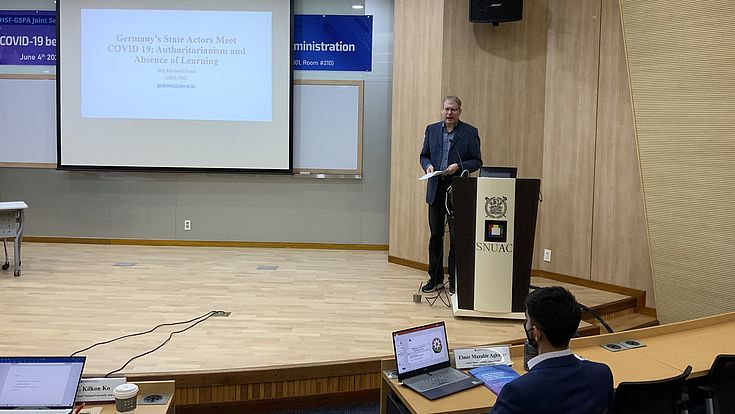
Professor Jörg M. Dostal of Seoul National University Graduate School of Public Administration gave a talk on how Germany has dealt with the virus. Professor Dostal strongly criticized the policies that have been made in response to the crisis and how, in his view, is a danger to liberal democracy. According to Dostal, many COVID-19 related policies have been unfairly imposed on the German people and have been authoritarian in nature. Economic shutdowns and rules set as part of an attempt to curb the virus have in Dostal’s view been fearmongering and have infringed upon German constitutional rights. He continued by calling the safety of COVID-19 vaccines into question, which in his view, have been poorly tested. Professor Dostal also found fault with the public news in Germany, in which he criticized the news’ inability to air information that goes against the narrative of the state media. Dostal ended on a short talk about the potential dangers of the digital ID system that the EU has recently announced.
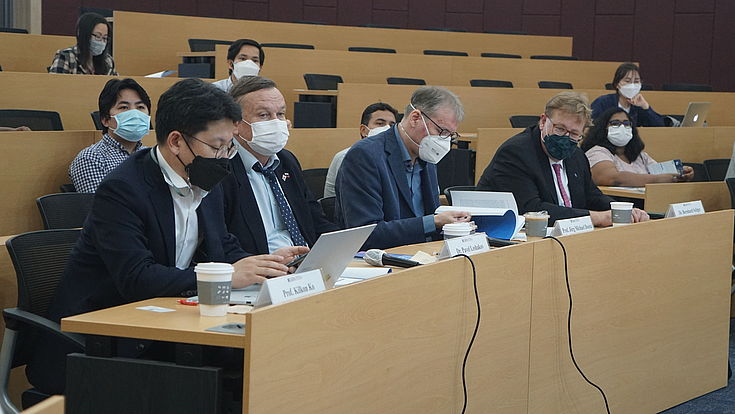
After a discussion led by Dr. Seliger on the topics of the first two presenters, Elmir Aghasoy, a student of SNU GSPA and a public official of the Azerbaijani government gave a presentation on how Azerbaijan has dealt with the pandemic. Mr. Aghasoy gave a summary of the virus’s timeline in his country and what steps the government has taken to combat the issue. According to Aghasoy, Azerbaijan has relied on various E-governance systems to spread public health information, to methodize vaccination rollouts, and regulations on social distancing measures. The Azerbaijani COVID-19 information portal “E-tabib”, provides information on infection data, statistics and provides locations of testing facilities, along with a helpline accessible for the public. Aghasoy believes that Azerbaijani E-governance capabilities have been a valuable tool for slowing the spread of the virus, however, digital literacy issues have sometimes proven to be a hurdle that the government needs to overcome.
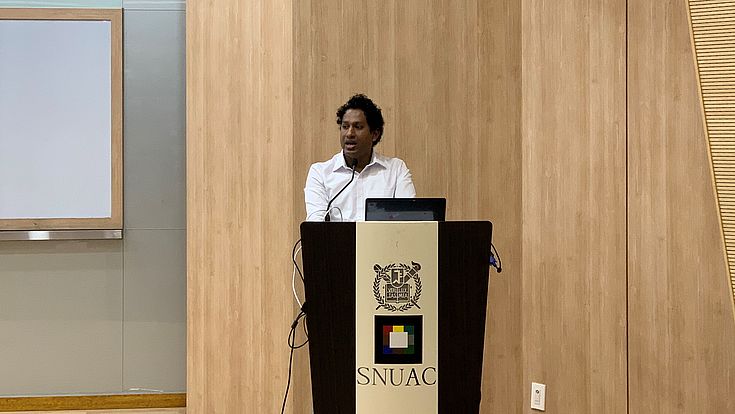
The last speaker of the seminar, Mr. Wasantha Sri Lal Weerakoon Gamage, also a student of SNU GSPA and a public official of the Sri Lankan government, gave remarks about the public health management measures taken in his respective country. He first introduced the general history and structure of the public health service. He added that Sri Lanka operates on a system of both, public and private health care services. Mr. Gamage followed with a timeline of the spread of COVID-19 in Sri Lanka. The country’s approach included giving the Defense Forces directives to establish and handle quarantine services. The Sri Lankan police, military, and health sector have all been directed to curb the spread of the virus together. Mr. Gamage also added that the rollout of vaccines is moving at a steady pace. Sri Lanka has 4 vaccines approved for use, including Russia's Sputnik V and the Chinese Sinopharm vaccine. The discussion rounds, moderated by Dr. Seliger demonstrated the different perspectives and methods to deal with the pandemic.
